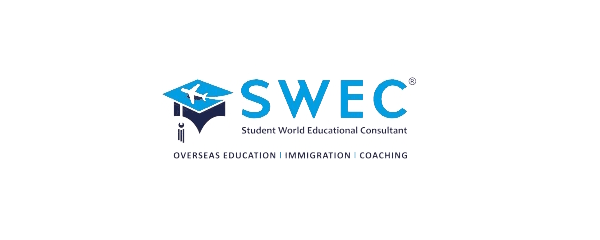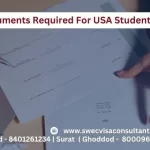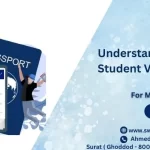Navigating the English proficiency requirement is crucial for anyone planning to study in the United States. For international students, demonstrating English language skills plays an essential role in both their visa application process and successful integration into American academic and social settings. This guide explains the importance of English proficiency for a U.S. student visa and the various accepted language tests. Here, we’ll cover what students need to know to ensure a smooth path to proving their English skills and securing a visa.
Understanding English language proficiency requirements is one of the first steps for international students aiming to study in the U.S. This article provides insight into why U.S. universities and visa officers emphasize English proficiency and how students can meet these expectations. By focusing on language requirements and the importance of different standardized tests, students can better prepare for the application process and academic success.
Table of Contents
Significance of English Proficiency for International Students
For students whose first language isn’t English, it is essential to demonstrate a solid understanding of English to qualify for a U.S. student visa. Academic programs in the U.S. are conducted entirely in English, and being proficient in the language allows students to engage fully in coursework, group discussions, and everyday interactions. Proficiency helps students thrive academically and socially, creating a smoother transition into U.S. life.
Why English Proficiency Matters for U.S. Study Visa
- Supports Academic Success: Understanding course materials, participating in discussions, and collaborating with peers all require solid English skills. Universities in the U.S. want to ensure that students can keep up with course demands and perform well academically.
- Role in Visa Officer Evaluation: Visa officers assess English skills as part of their evaluation to understand if the applicant is genuinely prepared for study in the U.S. Strong English proficiency shows readiness for academic challenges and ease of social integration.
- Facilitates Effective Communication: Being able to communicate well in English not only helps in academic settings but also in building relationships, navigating daily tasks, and adjusting to a new culture.
Understanding the English Proficiency Requirement for a USA Student Visa
Overview of Language Requirements by Visa Type
U.S. student visas fall into different categories, each with its focus and, occasionally, specific language expectations:
- F-1 Visa: Primarily for students enrolling in academic programs, the F-1 visa requires applicants to meet high standards of English proficiency. Universities generally require standardized test scores to ensure that students can keep up with the curriculum.
- M-1 Visa: This visa is intended for vocational or non-academic programs. English proficiency requirements may vary based on the program. Some M-1 applicants may not need the same level of English skills as F-1 students, depending on the nature of their courses.
- J-1 Visa: The J-1 visa is for students participating in exchange programs. English proficiency requirements for J-1 visas vary based on the program’s type and purpose. Some J-1 programs have lower language requirements, while others may expect proficiency similar to F-1 applicants.
Role of English Proficiency in Student Visa Interviews
Visa interviews are a critical step in the application process, during which English proficiency is closely assessed:
- Assessment of English Skills: Visa officers evaluate English proficiency during the interview by observing the applicant’s ability to understand questions and respond accurately.
- Common Questions Related to English Proficiency: Students may be asked why they chose the U.S. for their studies, details about their intended course, and plans after graduation. Clear, confident responses demonstrate a good grasp of English, which strengthens the applicant’s case.
Key Points Visa Officers Look for in Proving Proficiency
Visa officers look for specific indicators that show a student’s readiness to study in the U.S.:
- Comprehension and Confidence: Students should display an ability to comprehend questions quickly and respond confidently without hesitation.
- Communication Skills: Effective communication in English suggests that students will likely thrive in their academic pursuits and adapt smoothly to their new environment.
Recognized English Language Tests for USA Student Visa Applications
Most U.S. institutions and visa processes recognize specific English language tests to verify proficiency. Each test has unique characteristics that cater to different needs, so students should consider which option best suits their strengths.
Overview of Accepted English Language Tests
The most common English language proficiency tests accepted by U.S. institutions include TOEFL, IELTS, PTE Academic, the Duolingo English Test, and Cambridge English Tests. Let’s look at each one in more detail:
TOEFL (Test of English as a Foreign Language)
- Structure and Scoring: TOEFL evaluates English skills through four sections: Reading, Listening, Speaking, and Writing. Each section is scored individually, leading to a composite score out of 120.
- Recommended Score Range: For many U.S. universities, scores between 80 and 100 are preferred, with higher scores often required for competitive programs.
- Why Choose TOEFL: TOEFL is widely recognized by U.S. institutions and allows students to demonstrate their proficiency through a structured, well-respected test.
IELTS (International English Language Testing System)
- Overview of Test Sections: IELTS tests English through Listening, Reading, Writing, and Speaking sections. Scores are given on a 1–9 band scale, with an overall score derived from the average of all sections.
- Score Requirements: Most U.S. institutions require a minimum overall band score of 6.0 to 7.5, depending on the program level (undergraduate, postgraduate).
- Why Choose IELTS: IELTS is accepted worldwide, and students who are comfortable with the format may find it a suitable option for U.S. visa applications.
PTE Academic (Pearson Test of English Academic)
- Structure and Scoring System: PTE evaluates Speaking, Writing, Reading, and Listening skills, providing a score out of 90. The test is known for its quick results and objective scoring.
- Acceptance Levels: Many U.S. universities accept PTE scores, with typical minimums ranging from 50 to 65 for general admission and 70+ for competitive programs.
- Suitability for Certain Students: PTE’s AI-based scoring provides unbiased results, making it popular among students looking for quick, reliable assessments.
Duolingo English Test
- Popularity and Acceptance: The Duolingo English Test is growing in popularity, especially since it can be taken online at home. Many U.S. universities have started accepting Duolingo scores as an alternative to traditional tests.
- Format and Scoring: The test includes Reading, Listening, Speaking, and Writing tasks, with a score range from 10 to 160. Many U.S. institutions require a minimum score of 100–120.
- Benefits of Choosing Duolingo: Duolingo offers flexibility and affordability, making it suitable for students looking for a convenient testing option.
Cambridge English Tests
- Cambridge English: Advanced (CAE) and Proficiency (CPE): Cambridge English exams test a high level of English proficiency, especially useful for advanced academic settings.
- When to Choose Cambridge Tests: These tests are appropriate for students with strong English skills who may already have experience studying in English-speaking environments. Certain U.S. institutions may recognize Cambridge English scores as proof of proficiency.
University-Specific Language Requirements and Exemptions
Variation in English Proficiency Requirements by University
The requirements for English proficiency can vary significantly among universities in the U.S. Factors influencing these requirements include:
- Location: Universities in urban areas may have different expectations compared to those in rural settings. For instance, institutions in cosmopolitan cities might require higher proficiency levels due to diverse student populations.
- Ranking: Prestigious universities typically have more stringent English language requirements. Top-tier institutions often expect applicants to achieve higher scores on standardized tests.
- Program Type: Different programs may have varying proficiency standards. For example, graduate programs, especially in fields like engineering or business, may demand higher English proficiency than undergraduate programs in the arts or humanities.
Exemptions for English Proficiency Tests
Certain conditions allow students to qualify for exemptions from English proficiency tests:
- Primary Language Conditions: If a student’s first language is English, they may be exempted from the testing requirement.
- Prior Education in English-Speaking Countries: Students who have completed their education in countries where English is the primary language (e.g., the U.S., UK, Canada, Australia) may qualify for an exemption.
- Checking Eligibility: To determine if previous education qualifies for an exemption, students should review their university’s website or contact the admissions office directly. Many institutions provide clear guidelines on their language requirements and exemptions.
How to Choose the Right English Proficiency Test for Your Needs
Choosing the appropriate English proficiency test can be overwhelming, but considering various factors can simplify the decision-making process:
Factors to Consider When Choosing a Test
- Test Availability: Check which tests are available in your country and when they are offered. Some tests may have more frequent testing dates than others.
- Costs: Different tests come with varying registration fees. Consider your budget while selecting a test.
- Duration: Understand the length of each test, as this may influence your choice based on your study schedule and test-taking comfort.
- Preparation Resources: Assess the availability of study materials and resources. Some tests offer extensive official preparation resources, while others may not.
- University Preferences: Research specific universities or programs to determine which tests they prefer. Some institutions may only accept certain tests.
Comparison Table for Common English Proficiency Tests
Here’s a comparison of some widely recognized English proficiency tests to help students make informed decisions:
| Test | Format | Cost (Approx.) | Validity | Score Range |
| TOEFL | Reading, Listening, Speaking, Writing | $200 – $300 | 2 years | 0 – 120 |
| IELTS | Listening, Reading, Writing, Speaking | $200 – $300 | 2 years | 1 – 9 (band score) |
| PTE | Speaking, Writing, Reading, Listening | $200 – $250 | 2 years | 10 – 90 |
| Duolingo | Reading, Listening, Writing, Speaking | $49 | 2 years | 10 – 160 |
Preparing for English Language Proficiency Tests
Effective preparation is key to achieving a high score on English proficiency tests. Here’s how to approach your study plan:
Planning Your Preparation Timeline
- Ideal Preparation Time: Based on your current English level, plan a preparation timeline of 1 to 3 months. Beginners might need more time, while those with moderate proficiency may require less.
- Setting a Study Plan: Align your study schedule with application deadlines. Create a weekly study plan that dedicates time for each section of the test and allows for revision.
Resources for Test Preparation
- Online Courses: Explore various online platforms offering test preparation courses. Websites like Coursera, Udemy, and official test sites can be helpful.
- Practice Tests: Utilize official practice tests to familiarize yourself with the exam format. These are often available for free or at a nominal cost.
- Free vs. Paid Resources: Free resources can be beneficial, but paid resources often provide comprehensive coverage and structured learning paths that can enhance preparation.
Tips for Each Section of English Proficiency Tests
- Reading: Practice time management skills to ensure you can complete all passages. Focus on comprehension strategies, such as skimming for main ideas and scanning for details.
- Writing: Familiarize yourself with common essay topics. Understand the essay structure, including the introduction, body, and conclusion. Practice writing essays to improve grammar and clarity.
- Listening: Develop techniques to improve focus, such as taking notes during listening exercises. Regular practice with different accents and speakers can enhance retention.
- Speaking: Build confidence by practising speaking with friends or through language exchange programs. Focus on fluency and pronunciation, and record yourself to identify areas for improvement.
Mock Tests and Practice Sessions
- Importance of Mock Tests: Taking mock tests helps gauge your readiness and simulates real test conditions, reducing anxiety on test day.
- Tracking Improvement: After each practice session, review your performance to identify strengths and areas needing further focus. Use this feedback to adjust your study plan accordingly.
Strategies to Prove English Proficiency During the Visa Interview
Preparing for English-Related Questions
During your visa interview, officers often ask questions to assess your English skills. Preparation can significantly enhance your confidence and clarity in answering.
- Examples of Questions:
- “Why did you choose this university?”
- “What are your career goals?”
- “How do you plan to manage your studies and stay in the U.S.?”
- Structuring Your Answers:
- Start with a clear, concise answer.
- Use simple language to convey your thoughts, focusing on complete sentences.
- Avoid complex vocabulary; visa officers appreciate clarity and directness.
Demonstrating Effective Communication Skills
Effective communication extends beyond words; it’s about how you present yourself.
- Body Language Tips:
- Maintain eye contact to show confidence.
- Sit upright and use open body language to convey ease and attentiveness.
- Speaking Clearly:
- Avoid rushing; a calm pace demonstrates control.
- Pronounce words distinctly without over-emphasizing.
Common Pitfalls in Proving Language Skills During the Interview
To succeed, avoid these common pitfalls:
- Overuse of Memorized Phrases: Rehearsed answers can sound mechanical. Aim for natural, conversational responses that reflect genuine thought.
- Staying Calm Under Pressure:
- Practice breathing exercises before the interview to remain relaxed.
- Focus on the conversation rather than memorising specific answers.
Alternative Ways to Demonstrate English Proficiency
If a standardized test isn’t the best option, consider these alternative ways to demonstrate English skills:
Previous Education in English
If you have prior education in an English-speaking environment, this can serve as proof of proficiency.
- Transcripts and Certificates: Submit your academic records from English-medium institutions to support your language abilities.
Letters from Professors or Employers
Obtaining a letter from a former teacher, professor, or employer can provide an additional layer of credibility.
- Content of the Letter:
- The letter should highlight your ability to understand and communicate effectively in English.
- It’s best if the letter specifies your proficiency level in various skills like reading, writing, and speaking.
Online or In-Person English Language Programs
Many language programs are recognized by U.S. institutions and can be an alternative to traditional tests.
- Recommended Programs: Look for programs affiliated with English-speaking institutions, as they often provide certificates that are well-regarded by U.S. consulates.
Common Mistakes to Avoid When Proving English Proficiency
To strengthen your application, be mindful of these common mistakes:
Not Meeting Minimum Score Requirements
Each university or program may have specific score requirements; failing to meet these can lead to rejection.
- Check Requirements: Always verify the score requirements before registering for a test to ensure you meet your institution’s minimum standards.
Relying on a Single Attempt for English Proficiency Tests
Many students believe one attempt is enough, but practice can improve performance.
- Practice First: Take practice tests to familiarize yourself with the format and identify areas needing improvement.
Using Memorized Answers in Visa Interviews
Visa officers can recognize scripted responses, which can make you seem less genuine.
- Speak Naturally: Avoid reciting answers; instead, understand the questions so you can respond confidently in your own words.
Benefits of Proving Strong English Proficiency for a USA Student Visa
Proving your English proficiency brings multiple advantages that enhance both your educational experience and future career prospects.
Enhanced Academic Success
Language proficiency is critical for academic achievements like understanding lectures, writing assignments, and participating in discussions.
- Academic Advantage: Proficiency enables you to grasp course materials fully and actively engage in classroom discussions.
Improved Social Integration
Strong language skills help in adapting to American culture and forming meaningful relationships.
- Social Benefits: Effective communication allows for smoother interactions with classmates, faculty, and the local community, helping you feel more at home in a new environment.
Future Career Opportunities
Proficiency in English significantly boosts employability, especially in English-speaking countries.
- Career Growth: Employers value language proficiency as it demonstrates adaptability and communication skills, which are critical in globalized industries.
Conclusion
Proving English proficiency is a cornerstone of your U.S. student visa application. From choosing the right test to preparing for your visa interview, every step counts toward making a strong case for your language skills.
Final Tips for Success
- Choose Wisely: Select a test that aligns with your strengths and the requirements of your preferred university.
- Practice and Prepare: Invest time in preparation, taking mock tests, and refining your communication skills for the interview.
At SWEC Visa, we understand the importance of English proficiency for your academic journey in the U.S. Contact our experts for personalized guidance on selecting the best language test and mastering the skills needed for a successful visa application.






